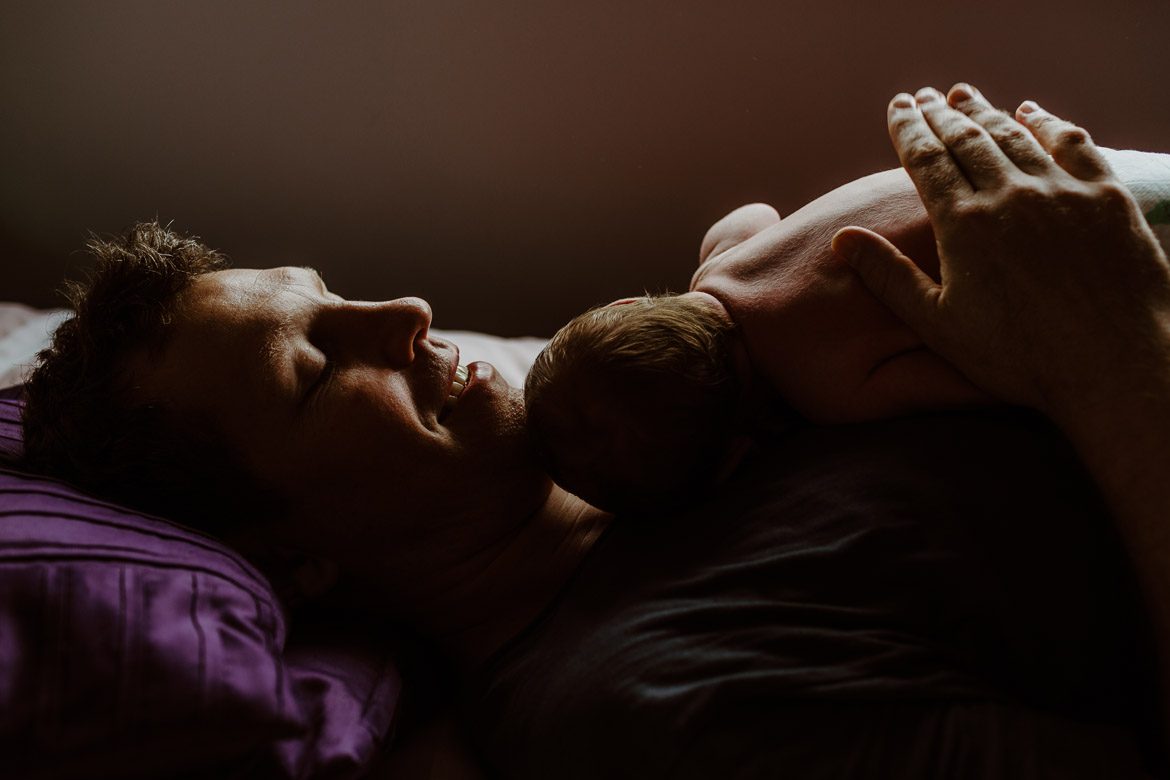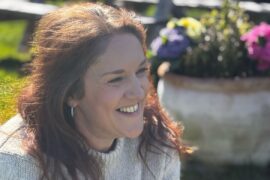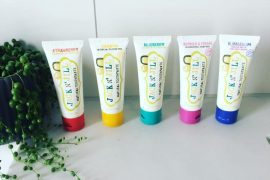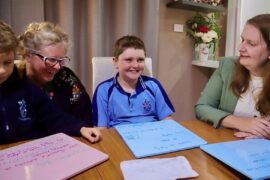By Jeremy Majid
On a dark winter’s evening my wife and I were about to do something we would not do again for a long time. Wendy and I sat gazing at a world map. We had decided that the following year we were going to start a family but we wanted to take one last overseas holiday on our own. A few months later we were descending into Sweden and after sleeping off our journey we set out to explore the beautiful city of Stockholm. As we wandered through the different districts, we couldn’t help noticing how many solo men were carrying babies. Surely there was some reason for this? Indeed there was. Unlike the two weeks of minimum-wage paternity leave available to me in Australia, Sweden has generous parental leave that can be accessed by both partners. What we were witnessing was the phenomenon known as Latte Pappas. I had planned to be a hands-on Dad, and given how much I like coffee, being a Latte Daddy seemed to be a perfect fit. The other thing we noticed about Stockholm was that the inner city suburbs all featured five story apartments, limited car parking and good public transport. If these young Swedes could raise a baby in an apartment, and with only one small car, then we could make it work with our hatch-back and two bedroom unit. I do wonder how our life would have turned out had we travelled to South East Asia, where whole families often travel on a single motorcycle, or at the other end of the spectrum, suburban America.
A year later, lying on Wendy’s chest, Harriet raised her head and saw us for the first time with clear blue eyes. Even with the classes, books, and advice, I wasn’t remotely prepared for what was to follow. It had taken nine months for a 2.75kg baby to grow inside Wendy’s belly and less than a day for that child to exit. Had I taken some time to reflect on this transition, I might have considered that the abdominal muscles that had been stretched around Harriet might be a little floppy following her birth. The result was that Wendy could no longer walk unassisted, not even to the bathroom. On top of this, during the steepest learning curve of our lives, we would not be allowed to make it through a full four-hour sleep cycle. I remember complaining to our obstetrician on the third morning that Harriet had woken every two hours the previous night. Though she had three children herself, she smiled and gave me the impression that this was a reasonable complaint.
I quickly realised how little I knew. It was one thing to put a nappy onto a teddy bear in a class, but quite another to deal with an alive and kicking baby excreting thick, sticky, black poo. We were hungry for advice and surrounded by professionals who cared for newborns every day – they would surely teach us what we needed to know. They did teach us, but their approach varied, often with one midwife completely contradicting another. To my engineering trained mind, it was incomprehensible that in one hospital, in one country, the staff couldn’t agree on how to care for a baby, something that has happened billions of times before.
Following the pregnancy, there was only one thing that differentiated my wife and I, or two things actually: breasts. These wonders of nature would become the central point around which everything revolved, and to a large extent still do nearly two years later. When Harriet was six months old we took her to the zoo and watched a baby monkey Harriet’s age climb up a tree, clutch on to his mother and help himself to some milk before going off to play again. It looked like the most natural thing in the world. When Harriet was born it hadn’t occurred to us to expect anything other than this, until Harriet arched her back and refused to attach to my wife. Wendy started using a machine to pump her milk into bottles and, thankfully, Harriet was happy to drink this way.
Following the pregnancy, there was only one thing that differentiated my wife and I, or two things actually: breasts.
Bringing Harriet home was a huge milestone, and would be far more challenging than I had anticipated. We had bought a cot for her to sleep in and thought we were clever by not buying a dedicated bassinet. The point of a bassinet became clear when I first placed our tiny newborn into this now gigantic cot. Unlike with the hospital bassinets, I couldn’t tuck the sheets in around Harriet to keep her snug, she was just too small. I eventually figured out a way to tuck her into the corner, feeling quite smug about my work until she awoke shortly after covered in sweat. Giving consideration to whether someone else might be too hot or cold is something I still haven’t quite mastered, although I have improved from that day.
The change in environment was too much for Harriet. I’m still not sure how she knew this, but while she seemed to sleep well in the hospital bassinet, she didn’t like our cot, not for more than 20 minutes anyhow. There are few things worse than feeling beyond exhaustion and finally falling asleep, only to be woken 20 minutes later; except for enduring this twice in a row. Desperate to get Harriet to sleep, I suggested to Wendy that we trial having her in our bed. It felt instinctive to do this, and despite all the fearmongering, we gained confidence in the practice. Harriet would happily fall asleep on either one of us and we both developed an acute sense of her position in the bed regardless of our slumber. Although this was not without its challenges, changing sheets on a Queen-sized bed twice in one night being one of them, but to be able to sleep, well…
The next big challenge was feeding. It took three weeks until Wendy breastfed successfully. Until that point, we had a gruelling routine of getting up every two hours so Wendy could pump milk and I could feed Harriet from the bottle filled with the expressed liquid gold. While not the ideal set up, the one positive was that I was able to be involved in the feeding. It gave me the motivation to get up when it was the last thing my body wanted. When Harriet was drinking and content, life was good; hard, but good.
Four weeks later I was back to full time work and I quickly discovered that human brains don’t work nearly as well with a baby at home. On my second day back, I had to provide a progress update at the weekly department meeting. Normally a simple matter, on this day no words came and my brain felt like some of the connections were missing. I can’t remember what I said, only that those words seemed painfully slow and basic. Poor memory function was an ongoing problem and I learned that I had to write everything down. The ways that I had been working for the past decade failed me and I had to adapt quickly.
With Wendy going back to work part-time nine months later I was keen to figure out how I could stay at home with Harriet and become a Latte Daddy. I decided the way forward was to sacrifice my relatively high level full-time job for a willingness to do just about anything two days per week. As luck would have it, my friend identified a suitable vacancy at his father’s company. It was a far less senior role, and an 80% reduction in pay, but by staying with the small car and house we could manage on less income. Our dramatically reduced spend on entertainment offset the cost of nappies (plus some), and as we got rid of the cot, our small house didn’t feel as cramped anymore.











